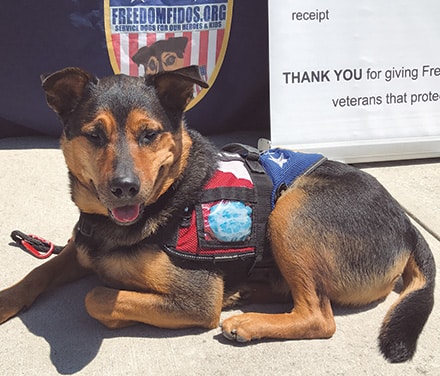
When referencing canines assisting humans, the first image that usually comes to mind is that of a guide dog helping a blind person get around. Yet the roles of trained service dogs are much wider than guiding people. Service dogs are trained to assist people with a variety of mobility issues, seizures, Post Traumatic Stress Disorder, (PTSD) autism, epilepsy and a host of other physical or mental disabilities. Dogs may also be trained to provide and be registered as emotional support or therapy dogs.
Dogs that are properly trained and registered as service dogs are protected by the Americans with Disabilities Act (ADA) which prohibits businesses, residential organizations or airlines from charging extra fees to allow a service dog to accompany its owner. The ADA also prohibits any person or organization from denying service dog access to any location or area open to the public, provided the dog is behaving properly.
The protections offered by the ADA are especially important because many times, a person with a service dog has no visible impairment. PTSD is one such condition. Service dogs have proven to be very successful at calming people with PTSD during an anxiety attack. While it may appear that unfamiliar territory.

Freedom Fidos doesn’t only help veterans, it also helps dogs; the program rescues dogs from animal shelters and trains them to be service dogs. Since its inception, the organization produced 32 service dogs, and trained the veterans who received them. Currently, over 200 veterans are on the waiting list. Fulfilling requests takes time as one to two years of training is required before a dog is ready to fulfill its service role. Financing is an additional challenge. Although Freedom Fidos is staffed by unpaid volunteers, it is funded completely by donations.
Burgess often travels to community events (he was recently at Snellville Days) as a means of creating awareness and raising donations, and he brings his dog Brinks with him to help with fund raising. When someone walks up with a donation, Brinks takes it and deposits it in the collection bucket. I wish I could train my dog to do that.

